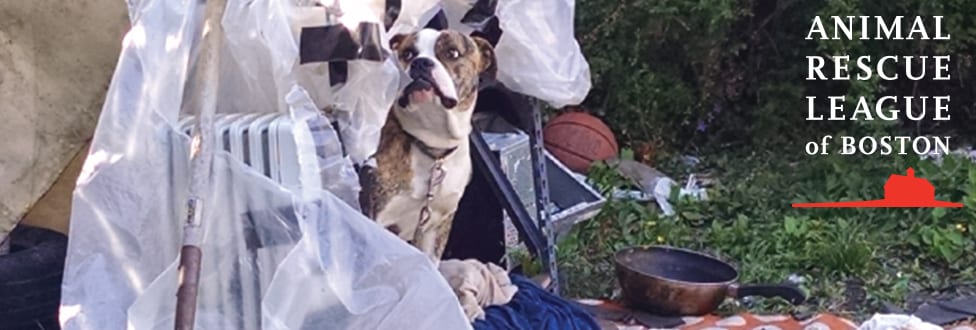Animal Rescue League of Boston Law Enforcement Services Hosts “Tethering Law” Workshops
More than 100 Animal Control Officers Participate
In 2016, Animal Rescue League of Boston (ARL) Law Enforcement Services logged 151 assists with local police and state agencies. This level of success wouldn’t be possible without the cooperation and comradery between municipalities and ARL, who are all working for a common goal.
To further build relationships with state and local agencies, ARL recently held a series of law enforcement workshops to discuss, in an open forum, how to better utilize the state’s “Tethering Laws” (MGL 140 Sec. 174E and 174F), which were amended and became law in November 2016. More than 100 animal control officers (ACO’s) from throughout the Commonwealth attended.
The three sessions were held at ARL’s Animal Care & Adoption Centers in Boston and Dedham, as well as the Dennis Police Department on Cape Cod. ARL Law Enforcement was thrilled with the participation.
“It was a significant turnout,” said Darleen Wood, ARL’s Associate Director of Law Enforcement. “Lectures like these give ARL the chance to work closely with municipalities from throughout the state, to ensure that everyone is on the same page, and that the ACO’s from those cities and towns know that ARL is always ready to assist their agency when animals are in need.”
“It was a great training session and it was nice to get some clarification,” said Renee Robichaud, ACO for the City of Westfield. “There’s been a lot of talk about the tethering law so it’s great to have some specifics so we as ACO’s have something to refer to when out in the field investigating.”
MGL 140 Sec. 174E allows ACO’s or Massachusetts State Police Special Officers with ARL or MSPCA the ability to cite a dog owner for:
- Excessive tethering or chaining
- Inadequate shelter
- Dogs being left out in dangerous weather
- Living conditions that may cause an animal physical or emotional harm
MGL 140 Sec. 174F, dubbed by ARL as “Too Hot for Spot”, allows law enforcement, ACO’s, and firefighters:
- The legal ability to remove any animal left in a vehicle where conditions may impact the animal’s health
- Allows the public to intervene, however only after specific procedures have been followed
As the temperatures rise, utilizing these statutes will be vital to protecting the health and safety of dogs across the state during the summer months, however the statute also includes extreme cold temperatures as well.
“Both of these statutes allow for the animal welfare professionals to step in before an animal experiences unnecessary suffering or even death,” Wood said. “The legislation supports animal welfare so animals can find protection from cruel or abusive situations and those inflicting such behavior can be held accountable for their actions.”
Officers may write warnings and citations for violations, with fines ranging from $50 for a first offense to $500 for subsequent offenses. Penalties may also include impoundment or loss of ownership of the dog.
Here to Help
Your vigilance is key, and if you witness or suspect animal cruelty or neglect, ARL’s Law Enforcement Services is here to help. To contact ARL Law Enforcement, call (617) 226-5610, however, if you see an animal in immediate danger, contact your local police department or animal control officer FIRST.


